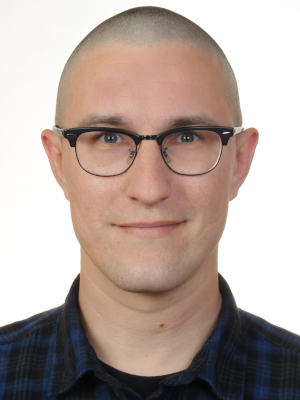Summary of international session at RSE18
Posted on 10 January 2019
Summary of international session at RSE18
 Photo by Andrew Butler.
Photo by Andrew Butler.By Ilektra Christidi, UCL and Stephan Druskat, Humboldt-Universität zu Berlin.
During the Third RSE conference in September, an international session was held in order to tap into the experiences and ideas of emerging RSE communities and associations around the world. The goal was to hold a more open discussion on the initiatives to be taken to coordinate this activity at an international level, capitalising on the RSE International Leaders workshop earlier this year. After some informative lightning talks that gave an overview of most national and regional RSE associations and of some international initiatives, the participants broke into separate discussion groups, which reported a summary of their discussion at the end of the session. The topics were very interesting and wide ranging, and the lively discussions could have continued well into the conference dinner time if we could have let them, so the summary given here is a very distilled version. We hope some of the ideas that emerged can be picked up by the international RSE leaders and the broader community.
Advice on starting a new RSE association or group
In order to kick-start an RSE association in countries where none exists yet, a critical mass of people is needed to be participating and contributing to the association. Communication channels must be identified, initially taking advantage of existing networks and mailing lists. For that, a bit of initial funding is needed for someone to do the “donkeywork”, setting up mailing lists, slack channel, writing some blog posts, etc. The next challenge is to keep people motivated and involved, by offering some training, meetups, seminars, etc. Can we create a “recipe” with tips and tricks towards building/ connecting the community?
Analysis of the international RSE survey results. What can we do with it?
There is a lot of information accumulated from this survey. In order to bring it forth, we need to plot everything and facet it by country to get an understanding of the shape of crucial distributions in each country. Then carefully chosen questions have to be asked based on those initial results, in order to backwards-create more complete stories of how people enter and progress in the RSE community, rather than single answer questions (eg. what’s the percentage of women in the field in country X). In this process, the questions for the next survey will probably need to be modified and amended.
Ideas for cross-national collaboration and how we extend to new countries
It is clear that cross-national collaboration and knowledge exchange between RSE groups is critical in kicking off new communities. In addition to the “vertical” location-based approach, “horizontally”-aligned domain-specific groups may help seeding new groups internationally, as these can, and already do, operate across borders, for example at domain conferences. In general, what both approaches need are channels for communication. These can be, and already are, located in Slack channels. More ideally, a list of named points of contact, e.g., will be created on the International RSE site.
Going forward, feedback on what could be adopted from the UK RSE “blueprint” should be collected. This may include additions to reported use cases or revisions of guides on how to set up groups or regional/national communities. Also, regionally or nationally dependent factors should be reported. Reporting could take the form of blog posts on the International RSE site.
The international RSE community should have the chance to get together to compare notes. Face-to-face meetings incur cost, and we need to find ways to fund these. One possibility could be fellowships from the Society of Research Software Engineering and similar associations world-wide, e.g., de-RSE - Gesellschaft für Forschungssoftware. What the international community can do today is set up webinars and community calls.
A future blog post will provide more details about the discussion in this group.
Strategies for sustainable software development. Is there a business model we should follow?
This is a very broad and difficult discussion, and it is not even clear that a specific model would even be useful. What does seem clear though is that a community, and not just isolated individuals, is needed to develop and use the software, in order for it to be sustainable. Even though it can be hard due to the diversity of research, an effort has to be made to make things extensible and useful to broader research communities, as well as to use good software principles. Based on this, open software becomes a condition, even though not an absolute answer, for success. Software maintainability is also at the heart of sustainability – code that is well tested, clean, well documented, and with managed dependencies.

